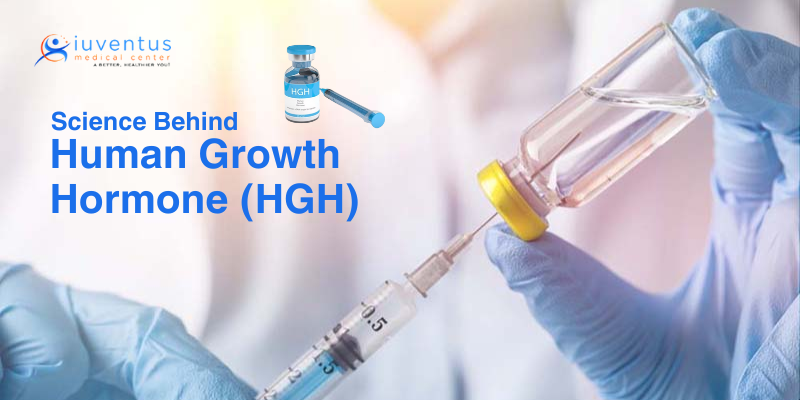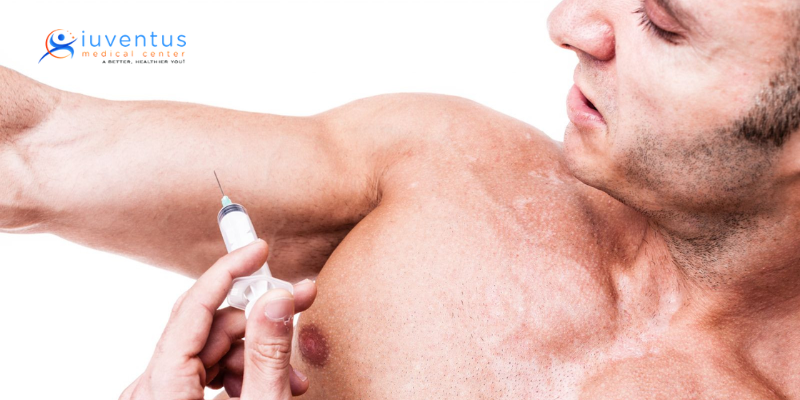The Science Behind Human Growth Hormone (HGH): 10 Key Benefits for Optimal Health

Human Growth Hormone (HGH) is a crucial hormone that plays a fundamental role in various bodily functions. The pituitary gland produces HGH, which is essential for growth, development, metabolism, and overall well-being. In recent years, there has been a growing interest in understanding the science behind HGH and its potential benefits for optimal health. In this article, we will delve into the intricacies of HGH and explore its ten key benefits.
10 Key Benefits of Human Growth Hormone
1. Stimulates Growth and Development

Human Growth Hormone (HGH) is a pivotal catalyst in the intricate process of growth and development. During childhood and adolescence, HGH orchestrates the elongation of bones, the formation of cartilage, and the development of various tissues, ensuring individuals attain their genetically predetermined height.
This essential hormone directs cellular reproduction, facilitating the replication of cells crucial for overall growth. Beyond the formative years, HGH maintains its influence, preserving bone density, muscle mass, and organ development. Its regulatory role extends to metabolic processes, emphasizing the paramount significance of HGH in orchestrating the symphony of physiological development throughout the human lifespan.
2. Supports Muscle Growth and Strength

Human Growth Hormone (HGH) plays a pivotal role in sculpting the muscular framework of the human body. It acts as a potent stimulator of protein synthesis within muscle cells, fostering the growth and maintenance of lean muscle mass.
HGH enhances the structural integrity of muscles, contributing to increased strength and endurance. This hormone not only aids in the repair of muscle tissue after exercise but also fosters the development of robust, well-defined muscles. Its influence extends to athletic performance, making HGH a critical factor in optimizing physical strength, agility, and overall muscular health throughout life.
3. Aids in Fat Metabolism and Weight Management
HGH has been shown to facilitate the breakdown of fats and promote the use of these fats as an energy source. This can aid in weight management and contribute to the reduction of body fat. Individuals with lower levels of HGH may experience an accumulation of fat, especially around the abdominal region.
4. Improves Bone Density and Bone Health
Human Growth Hormone (HGH) stands as a guardian of skeletal health, playing a vital role in maintaining bone density and strength. Beyond its childhood influence on growth plates, HGH continues stimulating bone growth and mineralization throughout life.
By enhancing the absorption of essential minerals like calcium and phosphorus, HGH contributes to bone density, reducing the risk of fractures and osteoporosis, particularly in aging individuals. This hormonal support fortifies the structural integrity of the skeleton, ensuring that bones remain resilient and resistant to the degenerative effects of aging. Thus, HGH emerges as a crucial factor in promoting enduring bone health across the lifespan.
5. Enhances Cognitive Function
Human Growth Hormone (HGH) extends its influence into cognitive function, impacting various facets of mental prowess. With receptors distributed in key brain regions, HGH has been associated with improved memory, attention, and overall cognitive performance.
Research suggests that HGH may be neuroprotective, potentially mitigating age-related cognitive decline. HGH contributes to a healthy cognitive landscape by fostering neuronal growth and connectivity. This neural support underscores the hormone’s significance in physical well-being and the preservation and enhancement of mental acuity, making it a crucial player in the intricate tapestry of overall human health.
6. Boosts Immune System Function
Human Growth Hormone (HGH) emerges as a sentinel in the defence against illnesses, as it actively supports and fortifies the immune system. By stimulating the production of vital immune cells, HGH enhances the body’s ability to fend off infections and diseases. This immunomodulatory role contributes to the overall resilience of the immune system, ensuring a robust response to pathogens.
Optimal HGH levels are linked to heightened immune function, providing a shield against common ailments. This immune-boosting effect highlights HGH as a regulator of physical development and a guardian of the body’s frontline defence, promoting enduring health and well-being.
7. Promotes Heart Health
In the intricate orchestra of human physiology, Human Growth Hormone (HGH) plays a conductor’s role in promoting cardiovascular harmony. HGH has been associated with positive effects on heart health, influencing factors such as cholesterol levels and cardiac function.
The hormone maintains a healthy cardiovascular system, reducing the risk of heart disease. It aids in regulating lipid metabolism, enhancing the heart’s efficiency, and promoting optimal blood flow. This cardioprotective influence positions HGH as a crucial player in sustaining a healthy heart, emphasizing its role in orchestrating a symphony of factors that collectively contribute to cardiovascular well-being.
8. Enhances Sleep Quality
Human Growth Hormone (HGH) is intricately intertwined with the quality of our sleep, acting as a nocturnal architect for optimal well-being. Released predominantly during deep sleep, HGH is essential for the body’s repair and restoration processes. It fosters the repair of tissues, the synthesis of proteins, and the overall rejuvenation of the body. Improved sleep quality, characterized by sufficient deep sleep stages, facilitates the optimal secretion of HGH, creating a reciprocal relationship. As a result, HGH supports physical recovery and contributes to mental revitalization, ensuring that each night of rest becomes a cornerstone for overall health, vitality, and sustained energy.
9. Supports Wound Healing and Tissue Repair
Human Growth Hormone (HGH) emerges as a natural healer, accelerating the intricate wound repair and tissue regeneration process. This vital hormone stimulates cell reproduction and facilitates the synthesis of proteins crucial for tissue repair. Whether recovering from injuries, surgeries, or other forms of tissue damage, optimal HGH levels play a pivotal role in expediting recovery.
By promoting cell regeneration, HGH ensures that wounds heal more efficiently, reducing the risk of complications. This reparative function underscores HGH as a guardian of day-to-day health and a facilitator of the body’s innate ability to recover and restore itself.
10. Anti-Aging Effects
While Human Growth Hormone (HGH) cannot halt the natural aging process, its potential anti-ageing effects have drawn significant attention. HGH may contribute to a youthful appearance by improving skin elasticity, reducing wrinkles, and promoting overall skin health.
As HGH levels decline with age, supplementation or stimulation of its release may mitigate some visible signs of aging. Its influence extends beyond aesthetics, as HGH also plays a role in maintaining overall vitality and well-being. Although further research is needed, the anti-ageing potential of HGH highlights its intricate involvement in the complex tapestry of human health and aging.
Conclusion
The science behind Human Growth Hormones reveals their multifaceted role in promoting optimal health throughout life. From supporting growth and development to influencing various physiological functions, HGH maintains overall well-being. While there is ongoing research into the potential therapeutic applications of HGH, it is essential to approach its use with caution and under medical supervision due to potential risks and side effects. As our understanding of HGH continues to evolve, it opens up exciting possibilities for harnessing its benefits for improved health and longevity.
